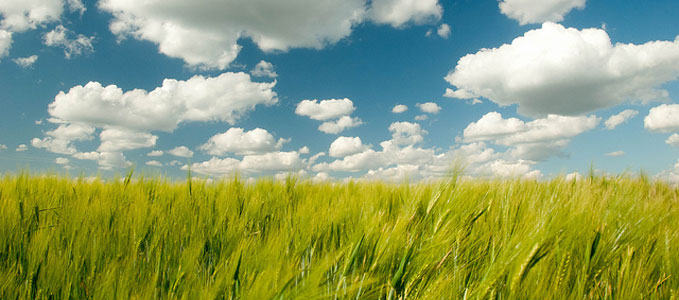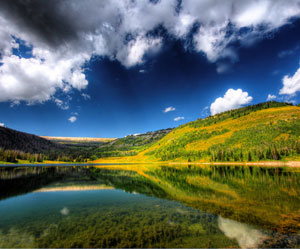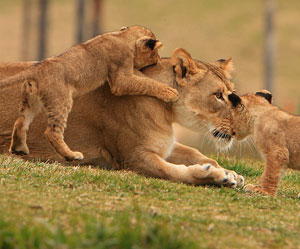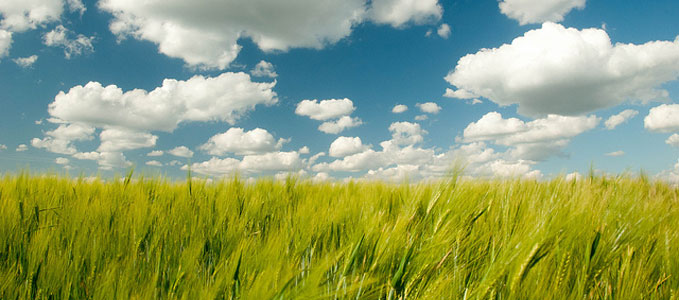by Mary Button
 Psalm 104 is a hymn to an all-loving, all-knowing Creator. It begins with the words, “Bless the Lord, O my soul” and is filled with beautiful images of a God who stretches out the heavens like a tent and makes the wind a messenger and fire and flame ministers. More than any other passage in the Bible, Psalm 104 informs my understanding of who God is and how God imbues all creation with goodness. While the whole of the psalm is extraordinary, I’d like to focus on verses 14 through 23. It is in these verses that we see the connectedness of creation.
Psalm 104 is a hymn to an all-loving, all-knowing Creator. It begins with the words, “Bless the Lord, O my soul” and is filled with beautiful images of a God who stretches out the heavens like a tent and makes the wind a messenger and fire and flame ministers. More than any other passage in the Bible, Psalm 104 informs my understanding of who God is and how God imbues all creation with goodness. While the whole of the psalm is extraordinary, I’d like to focus on verses 14 through 23. It is in these verses that we see the connectedness of creation.
You cause the grass to grow for the cattle, and plants for people to use, to bring forth food from the earth, and wine to gladden the human heart, oil to make the face shine, and bread to strengthen the human heart. (Psalm 104:14-15)
Grass for cattle, plants for people, wine and bread for the heart, and oil to anoint the face: all of creation is good. Every living thing under heaven was created by a loving God with an awe-inspiring intentionality. Just as grass grows for cattle, we are created for each other. The psalmist envisions a world in perfect harmony. All creatures under the sun are dependent upon one another not only for sustenance and substance, but for joy and happiness. In many ways these verses from Psalm 104 foreshadow the words of Christ in John 10:10, “I came that they may have life, and have it abundantly.” To have life and to have it abundantly means to live in harmony with all creation, to have oil to anoint our faces and bread for our hearts, but never at the expense of any other of God’s perfect creatures.
The trees of the Lord are watered abundantly, the cedars of Lebanon that he planted. In them the birds build their nests; the stork has its home in the fir trees. (Psalm 104:16-17)
 As deserts grow rapidly and spread across countries–a degradation of land in dry areas called desertification by environmentalists–it is difficult to remember that the Earth was created by an abundant God. Our cruel treatment of the Earth has brought forth these growing deserts along with shrinking ice caps and longer, hotter summers. Here in the United States, wood storks are considered endangered species, nesting only in swampy marshlands in Florida, Georgia, South Carolina, and North Carolina. In these areas, the storks are endangered as a result of suburban development and logging. When the cypress trees that they nest in disappear, so, too do their majestic inhabitants. The interconnectedness and interdependence of creation means that when one corner of creation suffers all of creation suffers. Conversely, in caring for one part of creation we care for all of creation.
As deserts grow rapidly and spread across countries–a degradation of land in dry areas called desertification by environmentalists–it is difficult to remember that the Earth was created by an abundant God. Our cruel treatment of the Earth has brought forth these growing deserts along with shrinking ice caps and longer, hotter summers. Here in the United States, wood storks are considered endangered species, nesting only in swampy marshlands in Florida, Georgia, South Carolina, and North Carolina. In these areas, the storks are endangered as a result of suburban development and logging. When the cypress trees that they nest in disappear, so, too do their majestic inhabitants. The interconnectedness and interdependence of creation means that when one corner of creation suffers all of creation suffers. Conversely, in caring for one part of creation we care for all of creation.
The high mountains are for the wild goats; the rocks are a refuge for the coneys. (Psalm 104:18)
Different translations of Psalm 104 interpret this verse differently. The New International Version states that “the crags are a refuge for the hyrax” (a rodent-like creature that looks a little like a guinea pig) whereas the newer Common English Bible translates the passage as “the ridges are the refuge of badgers.” Regardless of the translation, this verse paints a vivid, living mountain landscape. The mountaintops are for the limber, wild creatures and the rocky ridges are for the small, foraging creatures. In Ecclesiastes 3:1 it is written that, “For everything there is a season, and a time to every matter under the heaven,” there is likewise a place under heaven for every creature. It is worth noting, however that the psalmist never writes that one creature is to have dominion over another or over the land.
You have made the moon to mark the seasons; the sun knows its time for setting. You make darkness, and it is night, when all the animals of the forest come creeping out. (Psalm 104:19-20)
The sun rises and sets, the moon pulls the tides in and out, and when darkness comes so, too, do all the creepy, crawling creatures of God. Once again, we see in Psalm 104 the connectedness of creation–this time in the movement of heavens; the sun sets and out scurry all of the nocturnal beasts and birds of the forests. According to the psalmist, there is a unifying order to the universe. God has made the moon, but the sun keeps its own time, just as the animals of the forest know when to crawl out from their hiding places.
The young lions roar for their prey, seeking their food from God. When the sun rises, they withdraw and lie down in their dens. (Psalm 104:21-22)
 This is easily my favorite line from Psalm 104. I love the image of lions calling out to God, asking for food from a God who wants all of creation to live abundantly. The interconnected order of the universe is apparent here, too. Even lion cubs know when to retire to their dens to sleep through the heat of the day. God is with them as they sleep just as God hears them crying out for food when they wake. Storks in fir trees, wild goats on mountain tops, badgers on rocky ridges, nocturnal forest animals, and, finally, young and hungry lions–God sees and knows them all.
This is easily my favorite line from Psalm 104. I love the image of lions calling out to God, asking for food from a God who wants all of creation to live abundantly. The interconnected order of the universe is apparent here, too. Even lion cubs know when to retire to their dens to sleep through the heat of the day. God is with them as they sleep just as God hears them crying out for food when they wake. Storks in fir trees, wild goats on mountain tops, badgers on rocky ridges, nocturnal forest animals, and, finally, young and hungry lions–God sees and knows them all.
People go out to their work and to their labor until the evening. (Psalm 104:23)
It seems to be with great purpose that people come last in this beautiful litany of verses. We were not put on Earth to have dominion over it, but to live in harmony with all of God’s good creation. Our labor is in caring for the Earth, in being good stewards of all creation, and there is much work to be done. But, it is joyful work. As Jesus said to his disciples, “Take my yoke upon you, and learn from me; for I am gentle and humble in heart, and you will find rest for your souls. For my yoke is easy, and my burden is light.” (Matthew 11:29-30)
Mary Button is a graduate of the Tisch School of Arts at New York University and the Candler School of Theology at Emory University. She is an artist and writer and is currently serving First Congregational Church in Memphis, Tenn., as Minister of Visual Art.
Discussion questions:
1. Where do you see God at work in the universe? Are there animals in your life with whom you feel especially connected to God? What about seasons or times of the day?
2. If you were to write a hymn honoring creation, what plants and animals would you include? Why?
3. Do you agree that caring for God’s creation is joyful work? Why or why not? Are there special tasks in the care of creation (gardening, recycling) that you take special joy in doing?

